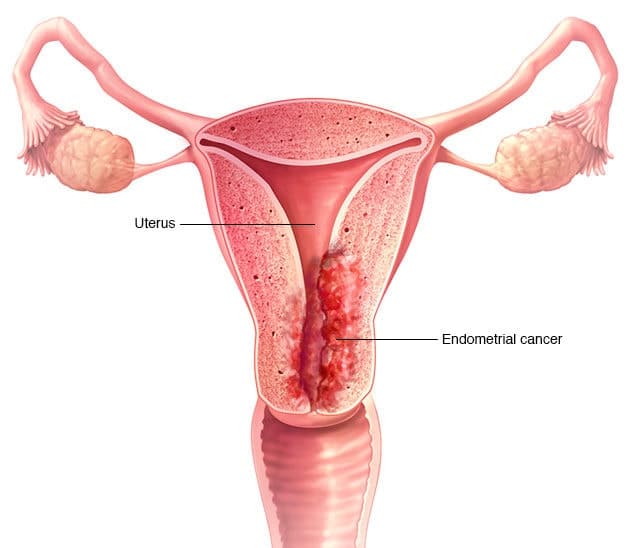Being told you have an ovarian cyst often leaves you with more questions than […]

Endometrial cancer is cancer arising from the lining of the uterus.
There are many risk factors for endometrial cancer, although not every woman with endometrial cancer has risk factors in their history. Risk factors include:
The most common symptom is abnormal bleeding. These can include:
Your gynaecologist will need to take a detailed medical history and perform a pelvic examination for you. A Pap smear/HPV test will be taken if you have not had one recently, as cervical cancer can also have similar symptoms. A transvaginal pelvic ultrasound will be done to check your uterus, uterine lining thickness and ovaries. One of the following tests will be recommended to obtain tissue from your uterine lining for microscopic analysis:
Your biopsy should state if you have a low-grade or high-grade cancer – this is a description of how abnormal the cancer cells look and how likely/fast they are likely to spread. Staging of the cancer is next. You will be asked to go for further imaging e.g. CT or MRI scans to check if the cancer has spread within your uterus or outside your uterus to the other parts of your body. In general –
Stage 1: cancer is found in the uterus only
Stage 2: cancer has spread to the cervix (neck of womb) only
Stage 3: cancer has spread beyond uterus and cervix but is still confined within the pelvis
Stage 4: cancer has spread outside of the pelvis
This depends on your age, general health, medical conditions and stage of cancer. Treatment can involve surgery, chemotherapy, radiotherapy or hormone therapy. Your gynae-oncologist will be able to discuss with you about the options suitable for you.
Surgery usually involves hysterectomy (removal of the uterus), bilateral salpingo-oophorectomy (removal of both fallopian tubes and ovaries) and/or possible lymphadenectomy (removal of lymph nodes in the pelvis and abdomen to check for cancer involvement).
For chemo- and radio-therapy, your gynae-oncologist will manage you together with a medical oncologist to optimise your treatment.
Photo Credit: Lolaia / Wikimedia Commons
Being told you have an ovarian cyst often leaves you with more questions than […]
Chronic bloating. Lower back pain. Fatigue that lingers even after rest. These are symptoms […]
Many women live with Polycystic Ovary Syndrome (PCOS) without realising fact from fiction. This […]





Aster Gynaecology © | All Rights Reserved.